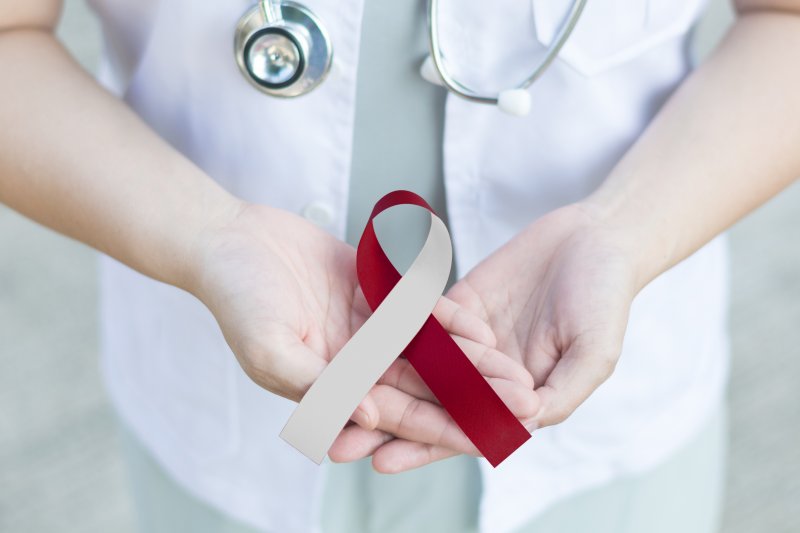
When you see your dentist for regular cleanings and checkups, they are looking for much more than just cavities and gum disease. Your dentist is keeping their eye out for a wide variety of abnormalities that could mean something in your body isn’t functioning as it should. One common concern of dentists is oral cancer. Read on to learn more about the stages of this disease, ways it’s treated, and prevention methods.
Stages of Oral Cancer
Here are the different stages of oral cancer that show the progression of the disease in the body:
Stage 0
Stage 0, also known as carcinoma in situ, is the very beginning of the oral cancer scale. This consists of abnormal cells in the lining of the lips or oral cavity, which have the potential to become cancerous.
Stage I
This is a very early stage of cancer. At this point, the tumor is no more than 2 centimeters, and the cancer has not yet reached the lymph nodes.
Stage II
Stage II describes a tumor that is larger than 2 centimeters, but no more than 4 centimeters. At this point, the cancer has still not reached the lymph nodes.
Stage III
This stage describes cancer that is either larger than 4 centimeters or has already spread to a lymph node in the neck.
Stage IV
This is the most advanced stage of mouth cancer. While it can be any size, at this point it has spread to nearby tissue, like the jaw or another part of the oral cavity, the lymph nodes, or a distant part of the body beyond the mouth.
How Can Oral Cancer Be Treated?
Treatment for oral cancer varies on the type, location, and stage. Here are some of the more common treatment methods that have been proven to be effective:
Surgery
Early-stage oral cancer can often be treated using surgery to remove the tumor or cancerous lymph nodes. Other tissue around the mouth and neck may also be taken out.
Radiation Therapy
Radiation therapy involves a doctor consecutively aiming radiation beams at a tumor. For advanced stages, this is usually combined with chemotherapy.
Chemotherapy
This is a treatment with drugs that kill cancer cells. It can be administered orally or intravenously.
Targeted Therapy
Targeted therapy drugs bind to specific proteins on cancer cells and interfere with their growth. This can be effective in both early and advanced stages of oral cancer.
How Can Oral Cancer Be Prevented?
Here are some steps that you can take in your daily life to reduce your likelihood of developing oral cancer:
- Don’t use tobacco products
- Eat a healthy diet
- Practice excellent dental hygiene
- Only drink alcohol in moderation
- Limit sun exposure
- Use a lip balm containing SPF
- Remove dentures every night and clean them daily.
Oral cancer can be very serious, but when it’s caught and addressed early on, patients often make a full recovery. In addition to using the steps above, remember to schedule your next oral cancer screening with your dentist. Early detection is key!
About the Practice
At Collinsville Dental Associates, we have a team of five dentists who are eager to provide personalized dental care to the Collinsville community. With their combined expertise, patients can get pretty much anything they need under one roof. To learn more about oral cancer screenings or to schedule an appointment visit our website or call (276) 647-1494.
